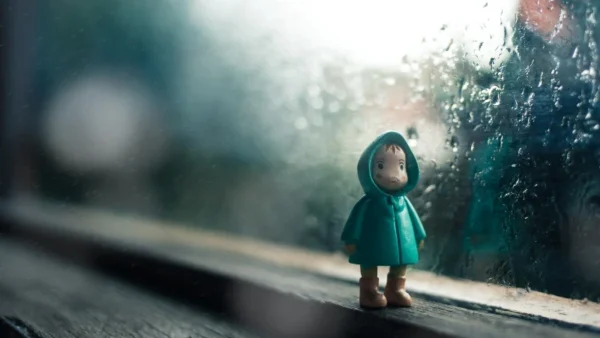Disclosure: This post may contain affiliate links, meaning we get a commission if you decide to make a purchase through our links, at no cost to you. Please read our disclosure for more info.
Last Updated on July 2, 2024 by Shopping Kim
PUL fabric is a unique fabric that has a slight learning curve to sew with. It is made by taking a lightweight polyester fabric and laminating it with polyurethane film.
One side of the fabric is smooth and shiny, while the other has holes that allow it to ‘breathe.’
In This Post:
1. It’s Durable
PUL fabric is a waterproof material with a laminated plastic layer. This makes it a popular choice for cloth diapers, wet bags, reusable nappies and bibs, changing mats and even picnic blankets. It is also often used in hospital-based applications like medical bedding and mattress protectors because it can be sterilized. Another great thing about PUL is that it is very durable and hard-wearing. Unlike other fabric types, it can resist stretching and won’t fray easily. It is also crease-resistant and dries quickly. In addition, the PUL is a wet-resistant and fungistatic material, which means it will not encourage the growth of mold or bacteria. You can wash it with cold or warm water and dry it in a dryer.

2. It’s Eco-Friendly
PUL fabric is made from a lightweight polyester knit with a layer of polyurethane film bonded to it in a hot-melt process. This creates a soft, flexible, hardwearing, breathable, and waterproof fabric. Unlike other materials, PUL does not self-heal when punctured with pins or needles, so carefully sew it. Instead, use clothespins*, hairpins or binder clips* to hold the fabric in place.
It is also easy to clean, making outdoor clothing and equipment popular. It can also be sterilized, which makes it ideal for reusable incontinence products and diapers.
3. It’s Affordable
PUL fabric is very affordable and can be used in various sewing projects. In addition, it is very easy to care for as most types are machine washable and often tumble-safe too.
You can use PUL to make many products, including cloth diapers, reusable nursing pads, anoraks and wet bags. It is also great for children’s art aprons, picnic blankets and water bottles.
One thing to remember with PUL is that it can be slippery, so you should use a longer stitch length when sewing. Putting the laminated side of the fabric’s right sides together is also important when cutting out your pattern pieces. Otherwise, it could slip all over the place in your machine.
4. It’s Easy to Sew
PUL fabric is relatively easy-to-sew, especially if you’re experienced with sewing and have a reliable sewing machine. It doesn’t fray or crease easily, washes well and dries quickly.
One side of the fabric is made from a polyester knit, while the other has a layer of polyurethane laminate adhered to it to make it waterproof. It doesn’t matter which side you use for your project, though it may be more convenient to sew with the laminated side facing away from you if you are making cloth diapers.
Manufacturers can create PUL fabric through hot melt or solvent lamination. The hot melt process, or green or eco-friendly PUL, uses heat and pressure to fuse the layers rather than harsh chemical solvents.
5. It’s Versatile
PUL fabric is a versatile material used for many different purposes. It’s lightweight yet durable and can be sewn into various projects, including cloth nappies and wraps, anoraks, wet bags, swim bags, changing mats and even cloth menstrual pads. This is because it is breathable and waterproof, making it the perfect choice for reusable clothing. It’s also easy to clean and can be sterilized, making it a popular fabric for hospital use as a mattress protector or medical bedding. While sewing with PUL can be tricky, it’s relatively straightforward once you get the hang of it. Always cut with the laminated side facing out and use a longer stitch length than usual to avoid slipping along the seams.





